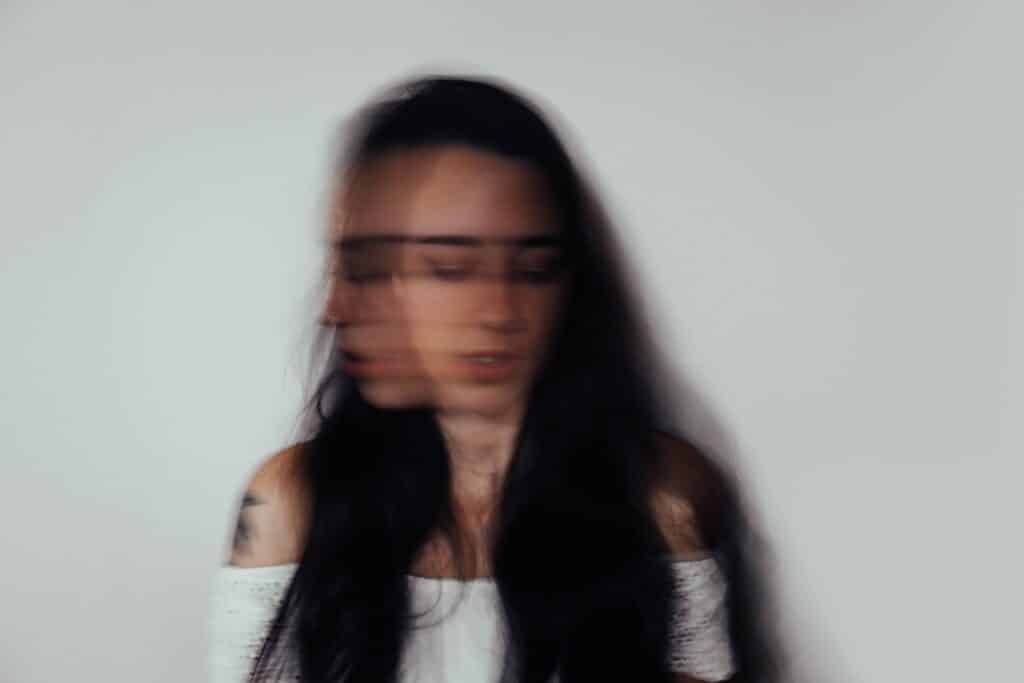Hangxiety is a relatively new term coined to express the hangover anxiety some people experience after drinking alcohol.
Need help getting addiction treatment?
Anxiety associated with the thought of developing a hangover can persist for a few hours, typically until blood alcohol concentration returns to baseline levels.
Learn more about hangxiety today from the symptoms and prevention of hangover-related anxiety to finding the most appropriate hangxiety treatment.
Now let’s learn, what is anxiety?.
What is Hangxiety?
You maybe wondering, “what is hanxiety?”.
A mashup of the words hangover and anxiety, this term refers to the common drinking experience of feeling anxious after a night of drinking, in addition to other common hangover symptoms like headaches, nausea, and irritability.
Researchers have not been able to isolate a single cause for hangover anxiety, but there are several theories that could explain hangover anxiety, commonly known as the term hangxiety.
When you consume alcohol, this causes your brain to produce high levels of dopamine. You’ll feel good as this chemical floods the brain, but the rush is fleeting. As dopamine levels dip again, feelings of anxiety can replace feelings of euphoria.
Hangxiety Cure
If you’re currently suffering from hangxiety (anxiety after drinking), there are a few ways to manage symptoms:
- Hydrate: If you’re dehydrated, your body will have a longer recovery period. Make sure to drink lots of water to speed up the process.
- Use over-the-counter pain relievers: While it may not fix your anxiety, having less physical pain can help your brain relax.
- Practice Moderation: It might be a little late if you’re currently experiencing hangxiety, but in the future, reducing the amount of alcohol you drink will keep you from having severe anxiety the next day.
- Healthy Diet: Eating a well-balanced meal before drinking can help slow down alcohol absorption, and keep you from feeling anxiety symptoms as badly.
- Get enough sleep: Alchohol can disrupt sleep patterns which makes anxiety worse. Try to sleep it off if you can.
- Use breathing techniques: Mindfullness and breathing techniques can help your brain relax a bit. Try the box breathing method: In for 4 secs, hold for 4 secs, out for 4 secs, hold for 4 secs.
- Move your body: Exercise is one of the best treatments for anxiety. Going for a walk or doing light exercise when you’re feeling anxious helps release endorphins, which are natural mood boosters.
- Avoid caffeine: Caffeine can seriously increase anxiety, so it’s best to avoid it when you’re already anxious. If you need something for your headache, consider a cup of cocoa and honey, which can help reduce inflammation and improve your symptoms.
- Connect with friends: Talking to friends or family about how you’re feeling can help, and engaging in activities with them can help distract you from anxiety.
- Seek professional help: If you find yourself experiencing hangxiety and want to stop drinking but are having a hard time, it may be helpful to get professional support.

Preventing Hangxiety
Keep in mind that the best cure for hangxiety is to prevent it from happening in the first place.
Here are some pointers for minimizing anxiety after drinking:
- Never drink alcohol on an empty stomach
- Drink a glass of water after each alcoholic drink
- & Limit your consumption
What can you do if it’s too late and you are already feeling the effects of hangxiety?
Don’t panic: that will only make things worse. Instead, follow this roadmap to feeling calm and anxiety-free after abusing alcohol.
Remember: the best way to avoid hangxiety is not to drink alcohol abusively.
What Causes Hangxiety?
Some of the most popular theories explaining hangxiety include:
- Poor sleep patterns
- Dehydration
- Social anxiety
- Detoxing from alcohol
- Emotional withdrawal
- Medications
- Alcohol intolerance
- Worry or regret
Poor sleep patterns
Even if you don’t consume excessive amounts of alcohol, it can still negatively impact your sleep health. You may feel that a nightcap helps you to sleep, but the quality of sleep delivered after drinking alcohol is impaired.
If you are already susceptible to anxiety, you will already likely be aware of a vicious cycle that develops: anxiety symptoms worsen when you get insufficient sleep, yet those same symptoms make it challenging to sleep properly.
Anyone who habitually uses alcohol as a sleep-aid should immediately rethink this strategy.
Dehydration
Alcohol is a diuretic that increases the frequency of urination. Compounding this issue, if you are drinking alcohol, you are likely not drinking enough water while you are knocking back alcoholic beverages. These factors combine to bring about dehydration. Research shows that dehydration can lead to anxiety, as well as triggering other adverse mood changes.
Social Anxiety
Anyone suffering from social anxiety may find a couple of alcoholic drinks helps them to relax and cope with feelings of anxiety or nervousness in the lead-up or during social events.
Although small quantities of alcohol can increase relaxation and reduce shyness, as the effects of alcohol wear off, the symptoms of social anxiety rebound. In some classic manifestations of hangxiety, you might even feel worse
Detoxing From Alcohol
The alcohol detoxification period can last for several hours, and can be legitimately considered a minor form of alcohol withdrawal.
Alcohol withdrawal is characterized by feelings of anxiety, nervousness, restlessness, and jitteriness. The same applies to hangxiety.
Emotional Withdrawal
When you consume alcohol, this leads to the release of feel-good endorphins, followed by a predictable crash. This means drinking alcohol may initially numb physical or emotional pain, but it will do nothing to make that pain dissipate.
Medications
Some medications, especially anti-anxiety and anti-inflammatory medications, react adversely with alcohol. The effect of these medications is reduced, and you may also feel more anxious.
Alcohol Intolerance
Alcohol intolerance or alcohol allergy can bring on many symptoms similar to the symptoms of anxiety after drinking. These include:
- Rapid heartbeat
- Nausea
- Fatigue
- Headaches
Worry or Regret
When you start drinking alcohol, your inhibitions will drop and you’ll feel comfier and more relaxed. Alcohol is renowned as a social lubricant for good reason.
Unfortunately, after three or more drinks, all of the following are impaired:
- Speech
- Thinking
- Judgment
- Reasoning
If you wake up after a night of heavy drinking worrying about what you said, what you did, or what kind of messages you sent when drunk, this is perhaps a manifestation of hangxiety.
To reiterate, it is not fully understood why hangxiety occurs, and perhaps all of the above theories have a role to play.
How Long Does Hangxiety Last?
Everyone experiences hangxiety differently. You may be wondering, “how long does hangxiety last?”.
As a rough guideline, most symptoms will last for no more than 24 hours. Beyond this, symptoms of anxiety associated with alcohol withdrawal can linger for days, sometimes weeks.
How Long Does a Hangover Last?
Hangovers will last until the amount of alcohol in the blood returns to zero. Symptoms of a hangover typically only last about 24 hours. If symptoms persist past this timeline, it might be in your best interest to get medical advice.

Hangxiety Symptoms
If you’re experiencing the after-effects of a night of drinking and are having hangover anxiety symptoms, it may be helpful to know the symptoms of a typical anxiety hangover.
Hangxiety causes the following hangover-related hangxiety symptoms:
- Fatigue
- Sluggishness
- Thirst
- Nausea
- Body aches
- Headaches
Additional symptoms of hangxiety include any or all of the following:
- Guilt
- Shame
- Racing heart
- Knot in the stomach
- Restlessness
- Inability to sleep
- Problems with focus
- Difficulty relaxing
How to cure hangxiety, then?
How Long Does Hangxiety Last?
Everyone experiences hangxiety differently. You may be wondering, “how long does hangxiety last?”.
As a rough guideline, most symptoms will last for no more than 24 hours. Beyond this, symptoms of anxiety associated with alcohol withdrawal can linger for days, sometimes weeks.
How Long Does a Hangover Last?
Hangovers will last until the amount of alcohol in the blood returns to zero. Symptoms of a hangover typically only last about 24 hours. If symptoms persist past this timeline, it might be in your best interest to get medical advice.

Hangxiety Symptoms
Hangxiety causes the following hangover-related hangxiety symptoms:
- Fatigue
- Sluggishness
- Thirst
- Nausea
- Body aches
- Headaches
Additional symptoms of hangxiety include any or all of the following:
- Guilt
- Shame
- Racing heart
- Knot in the stomach
- Restlessness
- Inability to sleep
- Problems with focus
- Difficulty relaxing
How to cure hangxiety, then?
GET HELP NOW
Get Treatment for Alcohol Addiction at Renaissance Recovery
If you find yourself often dealing with hangover anxiety, it may be time to consider getting help with an alcohol abuse problem.
For anyone with moderate to severe alcohol use disorder, withdrawal can be dangerous, and possibly even deadly. Consider supervised alcohol detox in a dedicated medical detox center. We can connect you with suitable facilities near you.
Once you have addressed the physical component of alcoholism, you’re ready to attack the powerful psychological aspect of this chronic and relapsing brain disorder.
At Renaissance Recovery Center in Southern California, we specialize in providing outpatient treatment for all types of addictions and mental health conditions at our Orange County treatment center. We offer a range of outpatient treatment programs to suit your needs, including:
- PHP (partial hospitalization program)
- IOP (intensive outpatient program)
- OP (outpatient program)
All Renaissance treatment programs offer personalized care, blending holistic and evidence-based interventions, including:
- MAT (medication-assisted treatment)
- Group therapy
- Individual counseling
- Psychotherapy
- Family therapy
- Holistic therapies
- Aftercare planning
Take the first brave step towards your ongoing recovery by calling admissions at 866.693.3821.



